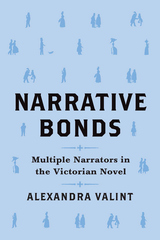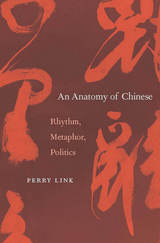
During the Cultural Revolution, Mao exhorted the Chinese people to “smash the four olds”: old customs, old culture, old habits, and old ideas. Yet when the Red Guards in Tiananmen Square chanted “We want to see Chairman Mao,” they unknowingly used a classical rhythm that dates back to the Han period and is the very embodiment of the four olds. An Anatomy of Chinese reveals how rhythms, conceptual metaphors, and political language convey time-honored meanings of which Chinese speakers themselves may not be consciously aware, and contributes to the ongoing debate over whether language shapes thought, or vice versa.
Perry Link’s inquiry into the workings of Chinese reveals convergences and divergences with English, most strikingly in the area of conceptual metaphor. Different spatial metaphors for consciousness, for instance, mean that English speakers wake up while speakers of Chinese wake across. Other underlying metaphors in the two languages are similar, lending support to theories that locate the origins of language in the brain. The distinction between daily-life language and official language has been unusually significant in contemporary China, and Link explores how ordinary citizens learn to play language games, artfully wielding officialese to advance their interests or defend themselves from others.
Particularly provocative is Link’s consideration of how Indo-European languages, with their preference for abstract nouns, generate philosophical puzzles that Chinese, with its preference for verbs, avoids. The mind-body problem that has plagued Western culture may be fundamentally less problematic for speakers of Chinese.

According to Clark, in order for one person to understand another, there must be a "common ground" of knowledge between them. He shows how people infer this "common ground" from their past conversations, their immediate surroundings, and their shared cultural background. Clark also discusses the means by which speakers design their utterances for particular audiences and coordinate their use of language with other participants in a language arena. He argues that language use in conversation is a collaborative process, where speaker and listener work together to establish that the listener understands the speaker's meaning. Since people often use words to mean something quite different from the dictionary definitions of those words, Clark offers a realistic perspective on how speakers and listeners coordinate on the meanings of words.
This collection presents outstanding examples of Clark's pioneering work on the pragmatics of language use and it will interest psychologists, linguists, computer scientists, and philosophers.
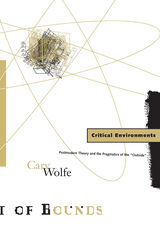
Argues for a pragmatist orientation for postmodern theory.
Taking up the problem that has stalled contemporary theory—its treatment of the object of knowledge, the “outside,” as nothing but what a particular discourse makes of it—this book suggests a solution: a reinvigorated, posthumanist form of pragmatism.
Author Cary Wolfe investigates three of the most significant strains of postmodern theory (pragmatism, systems theory, and poststructuralism) and shows how each confronts the specter of an “outside” not wholly constituted by discourses, language games, and interpretive communities. He then assesses these confrontations in light of an essentially pragmatic view of theory, one that constantly asks what practical and material difference it makes, and to whom, how these issues are negotiated. Wolfe concludes by comparing the pragmatist view of the relation of theory to politics with important work in contemporary post-Marxism. In arguing for a pragmatist orientation for postmodern theory, Wolfe deploys continental critical theory to avoid the nativism and “American exceptionalism” that has traditionally accompanied pragmatist philosophy. Unique in its collation of major theorists rarely considered together, Critical Environments incorporates detailed discussions of the work of Richard Rorty, Walter Benn Michaels, Stanley Cavell, Humberto Maturana, Francisco Varela, Niklas Luhmann, Michel Foucault, Gilles Deleuze, Fredric Jameson, and others, and ranges across fields from feminist philosophy of science to the theory of ideology. Wolfe draws on recent work in systems theory to articulate a properly postmodern pragmatism. In doing so, he offers American readers a detailed introduction to systems theory, which he situates and critiques in the broader context of philosophical pragmatism, the theory of democratic social antagonism, and materialist theories of ideology, knowledge, and power. An answer to the widespread charge of relativism leveled against postmodern theory, his work will enhance and inspire new kinds of critical thought.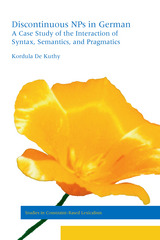


Divided into four parts, the papers collected in Volume II explore language in use; semantics and pragmatics; text and discourse; and language in society.
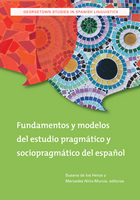
This rich textbook provides a comprehensive introduction to the principal concepts and thematic areas of Spanish pragmatics. It is aimed at advanced students of Spanish—upper-level undergraduates and beginning graduate students—who need to hone their language skills for contextually sensitive use of the language.
Written entirely in Spanish, with Spanish examples, this volume introduces basic pragmatics, methods of analysis, and new thematic areas such as language and the press and globalization. Theoretical explanations combine with practical exercises in each chapter to help students master the subtleties of language use.
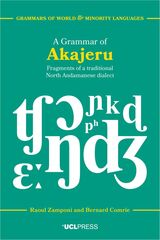
Originally spoken across the northern Andamanese Islands in the Bay of Bengal, the Akajeru language is spoken today by only three people. A Grammar of Akajeru describes this unique grammatical system as it was reported at the turn of the twentieth century. Based primarily on research conducted by Victorian anthropologists Alfred R. Radcliffe-Brown and Edward Horace Man, this book offers a linguistic analysis of all extant Akajeru material as well as the scant documentation of adjacent dialects Akabo and Akakhora. This volume includes a grammatical sketch of Akajeru, an English-Akajeru lexicon, and a comparison between Akajeru and present-day Andamanese.
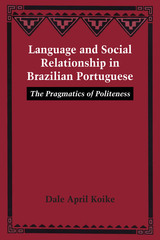
"Give me the salt" and "Please pass the salt" make the same request, but in a polite situation the first utterance may give offense, while the second may not. How and why such differences in wording and intonation, in a particular context, produce different effects is the concern of pragmatics, the area of linguistics that deals with how speech is used in interaction. In this innovative study of pragmatics in Brazilian Portuguese, Dale Koike analyzes the politeness phenomenon, specifically in the context of speech acts known as "directives."
As acts intended to get someone to do something, directives bring into play a variety of sociocultural factors, depending on the relationship between the participants. Using empirical data obtained through natural language observation and from questionnaires of over one hundred adult native speakers, Koike identifies factors—such as age, education, and gender—that influence the strategies of politeness a given speaker is likely to use in making a directive. This research clarifies the unwritten language rules and assumptions that native speakers intuitively follow in phrasing their directive utterances.
Koike also includes important material on the acquisition of strategies for politeness by children and adult second-language learners, as well as on gender differences in politeness forms. Her research proposes important additions to the theory of speech acts as conceived by Austin and Searle, particularly in the application of deictic organization to account for a hierarchy of pragmatic forms.
Language and Social Relationship in Brazilian Portuguese will be of interest to a wide audience in diverse fields, including linguistics, anthropology, interaction analysis, communications, semantics, sociology, psychology, and education.
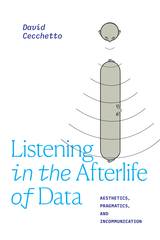

What would something unlike us--a chimpanzee, say, or a computer--have to be able to do to qualify as a possible knower, like us? To answer this question at the very heart of our sense of ourselves, philosophers have long focused on intentionality and have looked to language as a key to this condition. Making It Explicit is an investigation into the nature of language--the social practices that distinguish us as rational, logical creatures--that revises the very terms of this inquiry. Where accounts of the relation between language and mind have traditionally rested on the concept of representation, this book sets out an alternate approach based on inference, and on a conception of certain kinds of implicit assessment that become explicit in language. Making It Explicit is the first attempt to work out in detail a theory that renders linguistic meaning in terms of use--in short, to explain how semantic content can be conferred on expressions and attitudes that are suitably caught up in social practices.
At the center of this enterprise is a notion of discursive commitment. Being able to talk--and so in the fullest sense being able to think--is a matter of mastering the practices that govern such commitments, being able to keep track of one's own commitments and those of others. Assessing the pragmatic significance of speech acts is a matter of explaining the explicit in terms of the implicit. As he traces the inferential structure of the social practices within which things can be made conceptually explicit, the author defines the distinctively expressive role of logical vocabulary. This expressive account of language, mind, and logic is, finally, an account of who we are.
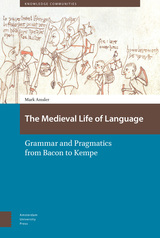
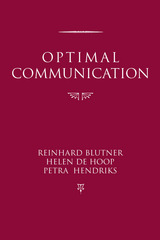

Walter H. Beale offersthe most coherent treatment of the aims and modes of discourse to be presented in more than a decade. His development of a semiotic “grammar of motives” that relates the problems of meaning in discourse both to linguistic structure and ways of constructing reality stands as a provocative new theory of rhetoric sharply focused on writing.
He includes a comprehensive treatment of rhetoric, its classes and varieties, modes, and strategies. In addition, he demonstrates the importance of the purpose, substance, and social context of discourse, at a time when scholarly attention has become preoccupied with process. He fortifies and extends the Aristotelian approach to rhetoric and discourse at a time when much theory and pedagogy have yielded to modernist assumptions and methods. And finally, he develops a theoretical framework that illuminates the relationship between rhetoric, the language arts, and the human sciences in general.
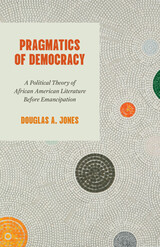
Douglas A. Jones’s Pragmatics of Democracy reads African American literature, from its beginnings through the mid-nineteenth century, to theorize how persons come to regard democracy as the most excellent form of political life. Jones notes that the aims of democracy, especially consent of the governed and equality under the law, can seem like tenets of governance that humans desire instinctively. But human nature does not correlate absolutely to politics. Jones argues that political selfhood is formed by “bodily events.” He proposes a typology of such experiences that dispose persons toward democratic subjectivity: ecstasy, impersonality, violence, respectability, and care.
African American literature before Emancipation reveals the democratic features of these categories that conventional political philosophy ignores or obscures. Given their lives as enslaved persons or the descendants of enslaved persons, early black writers crafted narratives about achieving democratic subjectivity that were missing in other Anglo-American canons. Pragmatics of Democracy discusses the works of well-known figures such as Phillis Wheatley, Harriet E. Wilson, and Frederick Douglass as well as those of more neglected writers such as Richard Allen, Peter Paul Simmons, James McCune Smith, and Frank J. Webb.
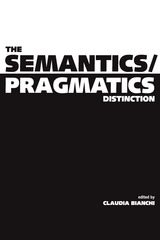

This book provides a clear and comprehensive overview of sociolinguistics and the pragmatics of oral communication in Spanish. Drawing on the research of foremost scholars in the field, Carmen Silva-Corvalán covers central concerns of variational sociolinguistics, discourse analysis, language change, and language contact, with special reference to Spanish in the United States.
A thoroughly revised and expanded version of Silva-Corvalán’s 1989 study, Sociolingüística: teoría y análisis, the book includes rigorous quantitative and qualitative analyses, and it documents such ongoing issues as language change in monolingual and bilingual communities, the nature of phonetic and syntactic variation, and modes of data collection and analysis. New topics include pragmatics and discourse analysis, discourse markers, and sociolinguistics and education.
Written in Spanish, Sociolingüística y pragmática del español will be welcomed by students and sociolinguistic researchers, who will find in it the ideal overview of the social aspects of language as well as a wealth of empirical data on Spanish linguistics. Complete with exercises at the end of each chapter and a convenient subject index, the book is appropriate for advanced undergraduates and graduate students of Spanish throughout the world.

This thoroughly updated second edition provides a clear and comprehensive overview of sociolinguistics and the pragmatics of oral communication in Spanish. While maintaining the same structure as the first edition, it includes revised “Ejercicios de reflexión” and new comprehension checks at the end of each chapter, along with numerous bibliographic references throughout, enhancing its use as a classroom text. Among the significant revisions are new sections on corpus linguistics and on statistical modeling programs for studying linguistic variables, an expanded chapter on the study of linguistic attitudes with special attention to Spanish in the United States, greater attention to the relation of pragmatics to sociolinguistics, including coverage of verbal politeness and forms of address, and updated information on Spanglish and on the teaching of Spanish as a heritage language.

In Someone, Michael Lucey considers characters from twentieth-century French literary texts whose sexual forms prove difficult to conceptualize or represent. The characters expressing these “misfit” sexualities gravitate towards same-sex encounters. Yet they differ in subtle but crucial ways from mainstream gay or lesbian identities—whether because of a discordance between gender identity and sexuality, practices specific to a certain place and time, or the fleetingness or non-exclusivity of desire. Investigating works by Simone de Beauvoir, Colette, Jean Genet, and others, Lucey probes both the range of same-sex sexual forms in twentieth-century France and the innovative literary language authors have used to explore these evanescent forms.
As a portrait of fragile sexualities that involve awkward and delicate maneuvers and modes of articulation, Someone reveals just how messy the ways in which we experience and perceive sexuality remain, even to ourselves.


The result of the collaboration between three distinguished philosophers, this book comprises the best sample of one of the most original theories in contemporary philosophy of language and communication—Critical Pragmatics. They present the development of the theory from its initial sprout, with “Three Demonstrations and a Funeral” (2006) as its first visible result, to a critical clarification of its tenets in “Critical Pragmatics: Nine Misconceptions” (2023). After Korta and Perry’s Critical Pragmatics (2011), this is the most important book on Critical Pragmatics, as it was conceived, developed and applied by its creators. Having de Ponte, Korta and Perry’s most important papers together on one place will be of great value to both philosophers and linguists.

The Treadmill Affect draws upon the work of three University of Chicago professors, each a former program director at the Center for Transcultural Studies: literary and cultural critic Lauren Berlant, historian and social theorist Moishe Postone, and linguist Michael Silverstein. Through this intellectual synthesis, Benjamin Lee demonstrates the critical possibilities of uniting a revived linguistic turn with Marxist accounts of affect and subjectivity, adding new dimensions to the "treadmill" affective structure of cruel optimism.
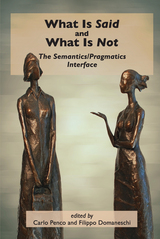
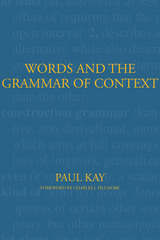
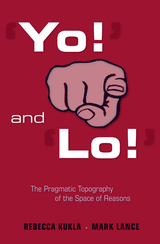
Much of twentieth-century philosophy was organized around the “linguistic turn,” in which metaphysical and epistemological issues were approached through an analysis of language. This turn was marked by two assumptions: that it was primarily the semantics of language that was relevant to broader philosophical issues, and that declarative assertions were the only verbal acts of serious philosophical interest. In ‘Yo!’ and ‘Lo!’ Rebecca Kukla and Mark Lance reject these assumptions. Looking at philosophical problems starting with the pragmatics of language, they develop a typology of pragmatic categories of speech within which declaratives have no uniquely privileged position. They demonstrate that non-declarative speech acts—including vocative hails (“Yo!”) and calls to shared attention (“Lo!”)—are as fundamental to the possibility and structure of meaningful language as are declaratives.
Entering into conversation with the work of Anglo-American philosophers such as Wilfrid Sellars, Robert Brandom, and John McDowell, and Continental philosophers including Heidegger and Althusser, ‘Yo!’ and ‘Lo!’ offers solutions (or dissolutions) to long-standing philosophical problems, such as how perception can be both inferentially fecund and responsive to an empirical world, and how moral judgment can be both objective and inherently motivating.
READERS
Browse our collection.
PUBLISHERS
See BiblioVault's publisher services.
STUDENT SERVICES
Files for college accessibility offices.
UChicago Accessibility Resources
home | accessibility | search | about | contact us
BiblioVault ® 2001 - 2025
The University of Chicago Press






